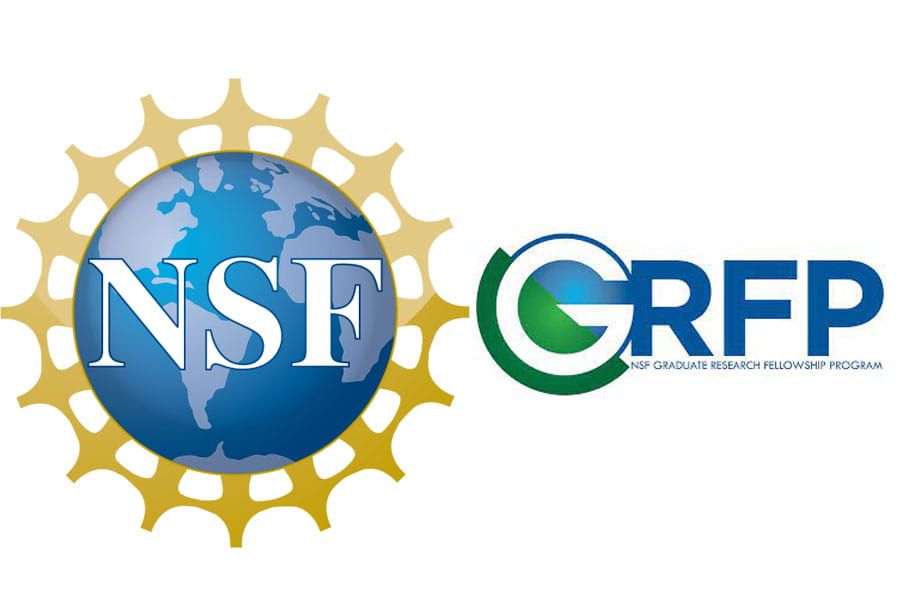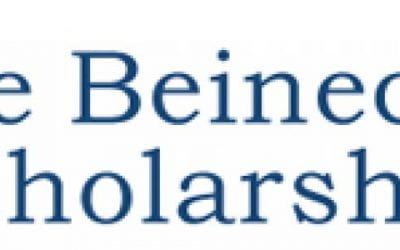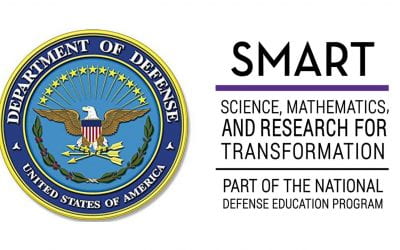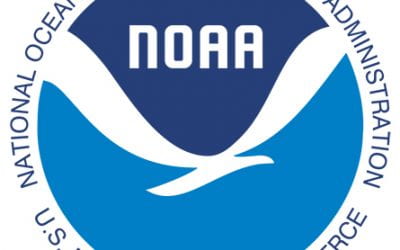Fields of Study
Eligibility by UCI School: Biological Sciences, Engineering, Information & Computer Science, Pharmaceutical Sciences, Physical Sciences, Public Health (Science only), and Social Sciences
Applicants must Intend to enroll in a research-based master’s or doctoral degree program in an eligible Field of Study in STEM or STEM education. Only research-based master’s and doctoral degrees in STEM or STEM education are eligible for GRFP support.
-
- Professional degree programs and graduate programs that are primarily course-based with no thesis are ineligible for GRFP support.
- Individuals are not eligible to apply if they will be enrolled in a practice-oriented professional degree program such as medical, dental, law, and public health degrees at any time during the fellowship.
- Individuals are not eligible to apply if they will be enrolled in graduate study focused on clinical practice, counseling, social work, patient-oriented research, epidemiological and medical behavioral studies, outcomes research, and health services research.
- Ineligible degree programs include, but are not limited to, MBA, MPH, MSW, JD, MD, DVM and DDS. Joint or combined professional degree-science programs (e.g., MD/PhD or JD/PhD) and dual professional degree-science programs are also not eligible.
Moreover, applicants must also be pursuing basic scientific research goals in an eligible subfield. The GRFP supports over 100 subfields. For more information, please see the list of supported Fields of Study and sub-fields on the NSF GRFP website.
- Ineligible study includes pharmacologic, non-pharmacologic, and behavioral interventions for disease or disorder prevention, prophylaxis, diagnosis, therapy, or treatment.
- Research to provide evidence leading to a scientific basis for consideration of a change in health policy or standard of care is not eligible.
- Graduate study focused on community, public, or global health, or other population-based research including medical intervention trials is also not eligible.
- Individuals are not eligible to apply if they will conduct research for which the goals are directly human disease- or health-related, including the etiology, diagnosis, and/or treatment of physical or mental disease, disorder, abnormality, or malfunction.
- Research activities using animal models of disease, for developing or testing of drugs or other procedures for treatment of disease or disorder are not eligible.
- Research focused on basic questions in plant pathology are eligible, however, applied studies focused on maximizing production in agricultural plants or impacts on food safety, are not eligible.
- Certain areas of bioengineering research directed at medical use are eligible. These include research projects in bioengineering to aid persons with disabilities, or to diagnose or treat human disease or disorder, provided they apply engineering principles to problems in medicine while primarily advancing engineering knowledge.
- Certain areas of materials research directed at development of materials for use in biological or biomedical systems are eligible, provided they are focused on furthering fundamental materials research.
Carefully review the current-year Program Solicitation on the NSF GRFP website for guidance on formulating proposals that are in line with the basic research mission of the NSF.
Eligibility
To be eligible for SOP advising services on an NSF Graduate Research Fellowship application, an undergraduate student (or recent undergraduate alumni) must:
- Be a U.S. citizen, national, or permanent resident;
- Intend to begin enrollment in a graduate program exactly two Fall terms in the future (not in the upcoming Fall term of the calendar year of application);
- Have never previously enrolled in, nor earned, a master’s or professional degree in any field;
- Not be a current NSF employee.
Scholarship Benefits
The GRFP provides up to three years of support for the graduate education of individuals who have demonstrated their potential for significant achievements in science and engineering research, including the following benefits:
- Five year fellowship period with three years of financial support;
- Annual stipend of $34,000;
- Cost-of-education allowance of $12,000 to the institution;
- No post-graduate study service requirement;
- Access to supplemental funding to sustain research while on medical deferral (e.g. family leave).
Recent Recipients & Honorable Mentions
Competitive NSF GRFP applicants demonstrate the ability to develop a strong research plan, succeed with their graduate study, and have broader impacts on society.
- In 2020-21, Luis Ramierz, Heather Romero Merciecia, and Tri Ngoc Dong received the fellowship. Thomas Cross, Christine Kim, Mahek Logantha, Isaryhia Rodriguez, JoAnne Villagrana, and Kimberly Zhang were recognized with Honorable Mentions.
- In 2019-20, Natalie Wu-Woods, Jessica Herrera, and Luciano Grosman were selected as fellows. Bryon Tjanaka was recognized with Honorable Mention.
- In 2018-19, Noreen Garcia and Kimmai Phan received the fellowship. Christian Totoiu, Stephanie Doering, and Rochelle Radzyminski obtained Honorable Mentions.
- In 2017-18, Elena Thomas and Kenny Huynh were selected as fellows.The Honorable Mentions named were Devan Nisson, Wyeth Gibson, and Alexander Alvara.
- In 2016-17, Nikolai Vogler, Manuel Torres, and Araceli Serrano were granted the fellowship. Rebecca Combs, Jason Yu, Ashlee Davis, Michelle Herrera, Pauline Ho, and Shiaki Minami were recognized with Honorable Mentions.
Please consult the brief biographies for our recent recipients and honorable mentions.
Competitiveness
When evaluating NSF proposals, reviewers will be asked to consider what the proposers want to do, why they want to do it, how they plan to do it, how they will know if they succeed, and what benefits could accrue if the project is successful. These issues apply both to the technical aspects of the proposal and the way in which the project may make broader contributions.
To that end, reviewers will be asked to evaluate all proposals against two criteria:
- Intellectual Merit: The Intellectual Merit criterion encompasses the potential to advance knowledge; and
- Broader Impacts: The Broader Impacts criterion encompasses the potential to benefit society and contribute to the achievement of specific, desired societal outcomes.
Recent recipients have had a 3.2+ GPA, one or more years of research experience, and demonstrate professional competence and dedication to the field of study through publications and presentations, leadership or mentoring roles in academic or science-related organizations, and/or significant work experience/internships related to the major.




